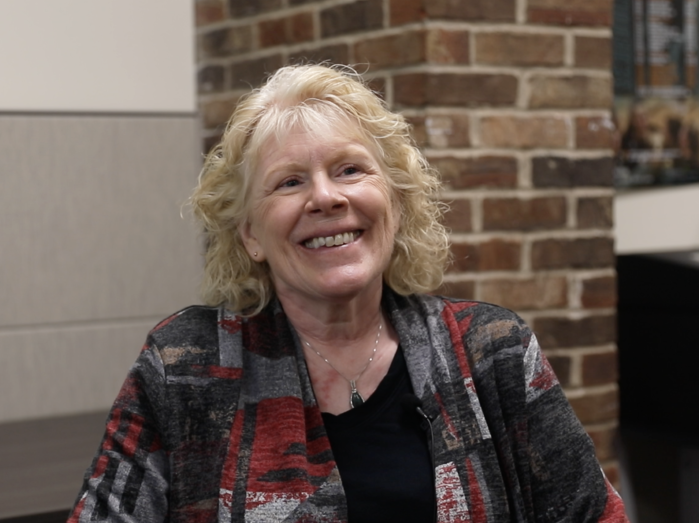
By Kate Wallace
One thing is certain about Judy Jacobson Berg’s time while she worked at SCTCC: she saw a lot of change. Another thing that’s certain? She happily welcomed the change because it meant better experiences for students.
From when Jacobson Berg started in 1990 until she retired in 2017, her title was Counselor, but the position description evolved over the years as she adapted to what was needed to serve students.
The first role she took on was to support students with disabilities in a transition program to ease them into college for a successful experience. The position was a part of a grant, so when the grant ended, she stayed in the role due to the need but also took on services for primarily single parent women.
These two roles set Jacobson Berg up for her time in TRIO Student Support Services, which she actually assisted writing the initial grant for in 1997. When TRIO came to SCTCC, she helped establish the department and get the word out to recruit students to join. With her help, the college became more familiar with the guidelines of the grant-funded TRIO department, more staff were hired to help, and the program really took off.
“It was very exciting times,” remembers Jacobson Berg.
After some retirements, she took on a more traditional counseling role and helped students not just with disability accommodations, but with mental health, walk-in emergencies, career advising, and academic advising. At this time, SCTCC was a technical college only, and she helped out during recruiting events to share career information about the programs the college offered.
In 2010, that changed and SCTCC offered an AA degree as well, which increased the need for career counseling and assistance for undecided students. Through it all, Jacobson Berg wasn’t fazed.
And it wasn’t just her roles and the college that changed; technology has come a long way since her start in 1990. The technology has changed the way that accommodations services are provided to students.
“When I was here, we had, for example, specialized reading machines that would read text, and it was very labor intensive,” she explained. “And now your phone will do that. To even that playing field for students has just been something tremendous.”
Jacobson Berg didn’t back away from a challenge or change during her time at SCTCC and is excited to see what SCTCC will do in the future.
“The new Center for Robotics is… just the kind of new initiative that shows growth in program opportunities while still paying attention to what has been here for a long, long time and has always been successful. Growth while still hanging onto the 75 years of success is an exciting time.”